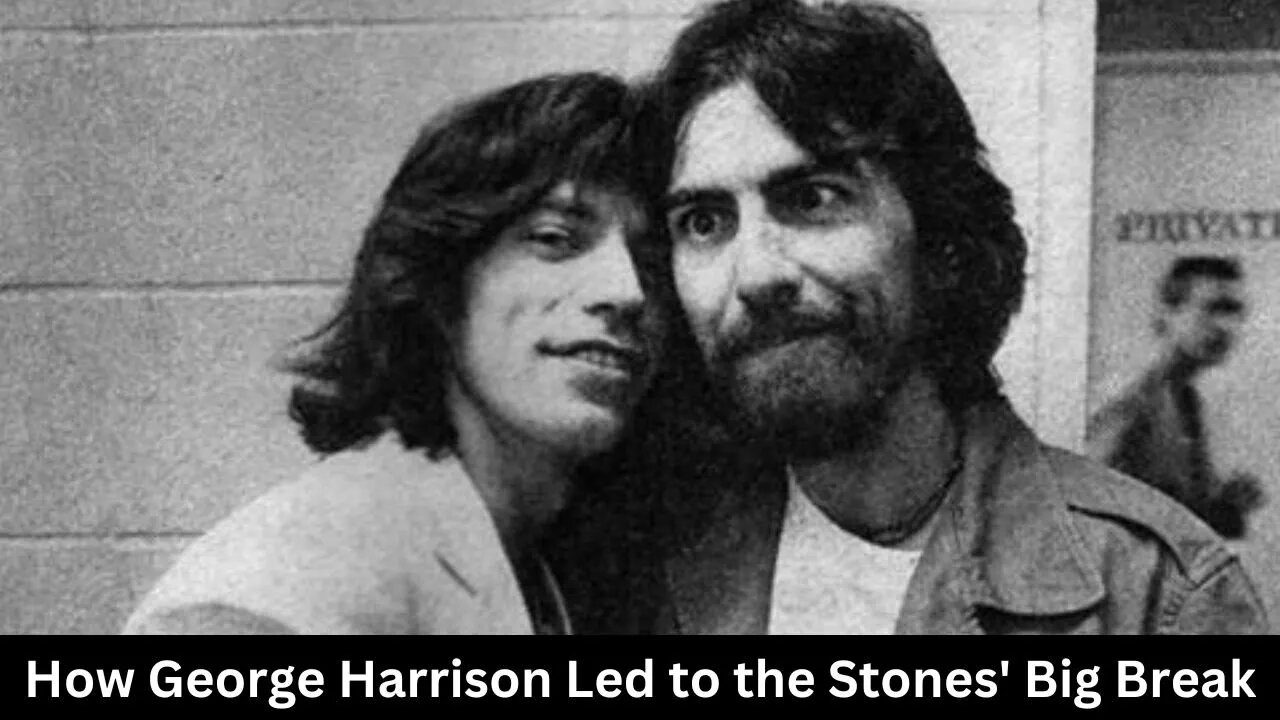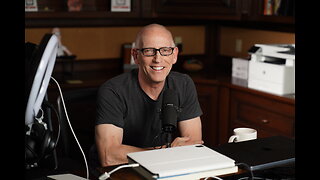Premium Only Content

Unbelievable Connection: How George Harrison Led to the Stones' Big Break #shorts #rollingstones
In the early 1960s, The Beatles were beginning to take the world by storm with their innovative sound and catchy tunes. They had already gained a massive following in their home country of England, and were beginning to gain attention in the United States as well. However, their story could have taken a completely different direction if not for a chance encounter with Dick Rowe, the head of Decca Records, and George Harrison's recommendation that he sign The Rolling Stones.
The events leading up to this meeting began when John Lennon, Paul McCartney, George Harrison, and Pete Best (the original drummer for The Beatles) auditioned for Decca Records on January 1st, 1962. The band played a selection of songs, including covers and a few of their own originals, but Rowe ultimately decided not to sign them. According to legend, he famously declared that "guitar groups are on their way out" and that The Beatles had "no future in show business."
While this rejection may have been a setback for The Beatles, it ended up having a major impact on their career and legacy. The band would go on to sign with EMI's Parlophone label and release their debut album Please Please Me in March of 1963. The album was a huge success, and The Beatles would become one of the most influential and beloved bands of all time.
However, the story doesn't end there. In December of 1963, George Harrison happened to run into Dick Rowe at a holiday party. Knowing that Rowe had passed on The Beatles just a year before, Harrison decided to try and make the most of the encounter. He recommended that Rowe check out a new band he had been listening to called The Rolling Stones.
The Rolling Stones had formed in London in 1962 and were quickly gaining a following with their bluesy, rock and roll sound. They had released their debut single, a cover of Chuck Berry's "Come On," earlier that year and were eager to build on their success. Harrison's recommendation to Rowe would end up being a crucial turning point in their career.
Rowe took Harrison's advice and signed The Rolling Stones to Decca in April of 1963. The band would go on to release a string of successful albums and singles over the next few years, becoming one of the biggest bands of the British Invasion alongside The Beatles. Their sound and image were often contrasted with The Beatles' by the media and fans, with The Rolling Stones being seen as the more rebellious and edgy of the two bands.
The impact of this meeting between Harrison and Rowe is perhaps most notable in how it affected the music industry and the cultural landscape of the 1960s. The Beatles and The Rolling Stones were both part of a larger movement that saw British musicians and bands achieving unprecedented success in America and around the world. Their music and style represented a break from the traditional, conservative norms of post-war society and a rejection of the old ways of doing things.
The rivalry and dynamic between The Beatles and The Rolling Stones was a key part of this cultural shift. Both bands were seen as representing different sides of a generational divide, with The Beatles embodying youth and rebellion while The Rolling Stones were seen as even more rebellious and defiant. Their music spoke to a new generation of young people who were looking for something different from the mainstream culture they had grown up with.
In conclusion, the meeting between Dick Rowe and George Harrison had a profound impact on the history of popular music and the cultural landscape of the 1960s. While Rowe's rejection of The Beatles may have seemed like a setback at the time, it ended up leading to one of the most successful and iconic careers in rock and roll history. Harrison's recommendation that Rowe sign The Rolling Stones was another important moment, cementing the band's place as one of the most important and influential of the British Invasion. The rivalry and dynamic between The Beatles and The Rolling Stones represented a larger shift in society, as young people sought out new forms of expression and identity in a rapidly changing world.
-
 LIVE
LIVE
Sm0k3m
8 hours agoPlaying games on Rumble
165 watching -
 10:37
10:37
Russell Brand
2 days agoHow is this even allowed?
141K797 -
 1:37:26
1:37:26
Real Coffee With Scott Adams
5 hours agoEpisode 2701 CWSA 12/26/24
74.8K75 -
 2:58:58
2:58:58
Wendy Bell Radio
10 hours ago9 Steps Ahead
107K127 -
 2:03:46
2:03:46
LFA TV
18 hours agoTIME FOR A NEW SPEAKER! | LIVE FROM AMERICA 12.26.24 11am EST
58.9K36 -
 1:40:22
1:40:22
Game On!
16 hours ago $5.03 earnedNFL Thursday Night Football Seahawks at Bears EXPERT Picks!
45.1K9 -
 1:50:54
1:50:54
xBuRnTx
5 hours agoWho's Ready for New Years!
33.5K1 -
 12:09
12:09
Tactical Advisor
17 hours agoSmith & Wesson Shield Plus Carry Comp
27.3K2 -
 4:35:25
4:35:25
Father Russell
11 hours agoDelta Force | Not A Woman? | Mad Martigan Time
67.5K5 -
 3:29:42
3:29:42
BrookieMonster
18 hours ago $44.84 earnedChristmas Stream: Marvel Rivals with CallmeSeags 🎄
186K13